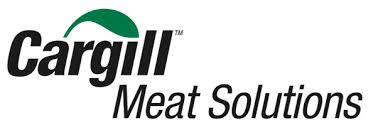Yum. I want some of that, grilled up and on my plate.
Yet, the title of this post is a real name for a real meat supplier – one of the largest in the world. It’s also a great example of how the word “solution” has become something that marketers routinely – and mindlessly in my opinion – sprinkle into their promotional copy and content.
As if the name wasn’t absurd enough, Cargill has stuck with it despite getting caught up in a 2012 public relations nightmare following ABC News reports about a gross-sounding beef product known as pink slime. Meat suppliers like Cargill, Beef Products Inc., and Tyson Foods (at least the latter two are more sensibly named) call it “finely textured meat.” If I were Cargill, I would not want to invite more scrutiny or ill will by billing myself as a maker of “meat solutions.” Yet still they persist. As many marketers do.
Our “solutionary” world
Mortgage solutions. Shipping solutions. Flooring, software, internet, consulting, and furniture solutions. There is no end.
PR Newswire is a major press release distribution service provider (press release distribution solutions?). Searching its database for the keyword “unique solution” turns up 25 results in the past month. From this small sample size, it seems that many, many companies are offering unique solutions. (Think about that for a minute…)
Abuse of the word solution is just one example of how marketers fall into the habit of adding jargon to their written content without really thinking about it. It’s a sure sign of lack of marketing savvy and sophistication. It says, “I looked around and saw everyone else doing it, so it must be good.”
How is that good marketing? Isn’t differentiation one of your primary goals? So if everyone else is using it, how does that help you establish a distinct voice and let people know they can get a product or service from you that they can’t get anywhere else?
Words like solution become so overused they become meaningless. It doesn’t create any motivation or interest in readers because they probably don’t even see the word anymore. Rather, it’s just part of the noise they have to wade through to get to the real information they want.
Not just my pet peeve
I think we’d all agree that TED talks are now a model of great communication and storytelling. I would go further to bet that you have been moved and inspired by at least one TED presentation. Why do these concise stories communicate ideas so effectively?
Carmine Gallo wanted to know, so he analyzed more than 500 TED talks to find out, then wrote a book titled “Talk Like TED: The 9 public-speaking secrets of the world’s top minds.” If I haven’t convinced you to cut worthless words like solution, see what Mr. Gallo says in a specifically highlighted callout called, The Power of Words, on page 68 of his book:
“Avoid overused buzzwords and clichés. Marketers love to use words such as leading, solutions, and ecosystem. These words are empty, meaningless, and used so often they’ve lost whatever punch they may once have had…Your audience will tune out phrases they’ve heard a million times.”
Amen.
Need another authority to convince you? How about Michael Bosworth, the man who wrote “Solution Selling.”
I once attended a University of California, San Diego extension class where he spoke. Already years into preaching against its use, I can still remember the warm sense of affirmation washing over me as he explained that marketers should never use the word solution in their marketing pitches. He said it is presumptuous to assume that you know the customer’s problem and have developed a “unique solution” before you even talk to them about what they need.
I always get the argument that in lieu of solution, then system or another word becomes just as overused. At least a system or product or network is a real thing, and not a word we’re left guessing as to what it really means. Also, that’s where professional writers can often rewrite sentences to eliminate the need to use any of those words.
Readers want to keep it real
Readers always value authentic and honest writing. That fact has always been true, but may be more important than ever, with so many more internet and social media channels they can use to find out about you and your ideas.
Don’t fall into the trap of amateurs who grab onto meaningless words because their knowledge of writing and marketing is so limited, they think they need to follow the crowd. Truly differentiate yourself with concrete written communication that sets you apart.
